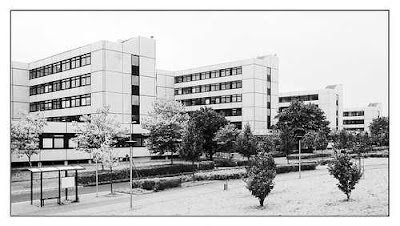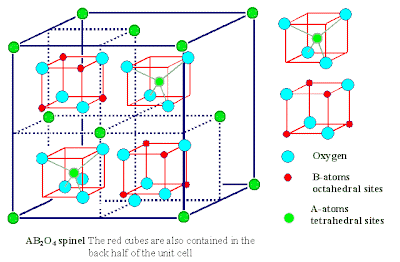Kiel University
| University of Kiel | |
|---|---|
| Christian-Albrechts-Universität zu Kiel | |
Seal of the University of Kiel | |
| Latin: Academia Holsatorum Chiloniensis sive Christiana Albertina | |
| Motto | Pax optima rerum |
| Motto in English | Peace is the greatest good |
| Established | 1665 |
| Type | Public |
| President | Gerhard Fouquet |
| Admin. staff | 2,175 |
| Students | 21,198 |
| Location | Kiel, Germany |
| Campus | Urban |
| Colors | Purple and white |
| Website | www.uni-kiel.de |
The University of Kiel is a university in the city of Kiel, Germany. It was founded in 1665 as the Academia Holsatorum Chiloniensis by Christian Albert, Duke of Holstein-Gottorp and has approximately 23,000 students today. The University of Kiel is the largest, oldest, and most prestigious in the state of Schleswig-Holstein.
History
The University of Kiel was founded under the name Christiana Albertina on 5 October 1665 by Christian Albert, Duke of Holstein-Gottorp. The citizens of the city of Kiel were initially quite sceptical about the upcoming influx of students, thinking that these could be "quite a pest with their gluttony, heavy drinking and their questionable character" (German: mit Fressen, Sauffen und allerley leichtfertigem Wesen sehr ärgerlich seyn). But those in the city who envisioned economic advantages of a university in the city won, and Kiel thus became the northernmost university in the Holy Roman Empire.
When Kiel became part of Prussia in the year 1866, the university grew rapidly in size. The university opened one of the first botanical gardens in Germany (now the Alter Botanischer Garten Kiel), and Martin Gropius designed many of the new buildings needed to teach the growing number of students.
The Christiana Albertina was one of the first universities to obey the Gleichschaltung in 1933 and agreed to remove many professors and students from the school, for instance Ferdinand Tönnies or Felix Jacoby. During World War II, the University of Kiel suffered heavy damage, therefore it was later rebuilt at a different location with only a very few of the older buildings housing the medical school.
Faculties
- Faculty of Theology
- Faculty of Law
- Faculty of Business, Economics and Social Sciences
- Faculty of Medicine
- Faculty of Arts and Humanities
- Faculty of Mathematics and Natural Sciences
- Faculty of Agricultural Science and Nutrition
- Faculty of Engineering
Courses
Bachelor of Science in Mathematics
Degree: B.Sc.
Mode: Full Time
Medium: Campus
B.Sc. Mathematics - Stands for Bachelor of Science Mathematics. Typically, a B.Sc. is a three year course, minimum eligibility for which is an intermediate (10+2) in science. Mathematics is the study..
Master of Science in Mathematics
Degree: M.Sc.
Mode: Full Time
Medium: Campus
Master of Arts in Economics
Degree: M.A.
Mode: Full Time
Medium: Campus
M.A. Economics - Stands for Master of Arts in Economics. An M.A. is a two year postgraduate degree, eligibility for which is an undergraduate degree in any discipline. Economics is the study and..
Master of Science in Environmental Management
Degree: M.Sc.
Mode: Full Time
Medium: Campus
Master of Science in Chemistry
Degree: M.Sc.
Mode: Full Time
Medium: Campus
M.Sc. Chemistry - Stands for Master of Science in Chemistry. An M.Sc. degree is typically for two years and requires an Undergraduate degree in the science to be eligible to pursue it. Chemistry is the..
Notable people
Alumni
- Franz Boas (1858–1942), anthropologist
- Gerhard Domagk, bacteriologist, Nobel laureate
- Gerhard Stoltenberg, politician former former prime minister of Schleswig-Holstein, former finance minister of Germany
- Peer Steinbrück, politician, former prime minister of North Rhine Westphalia, former finance minister of Germany
- Erich Walter Sternberg, composer
Academics
|
|
|
Nobel Prize Winners
There are several Nobel Prize Winners affiliated with the University of Kiel:
- 1902 Theodor Mommsen (Literature)
- 1905 Philipp Lenard (Physics)
- 1918 Max Planck (Physics)
- 1922 Otto Meyerhof (Medicine)
- 1950 Kurt Alder and Otto Diels (Chemistry).
| |||||||||||||
We hope you will find the information on this website helpful.
For even more detailed information please visit (http://www.ub.uni-kiel.de/) German-language website.
For even more detailed information please visit (http://www.ub.uni-kiel.de/) German-language website.




























































No comments:
Post a Comment